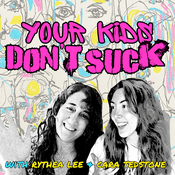S1 EP7 re-release: In this episode, we dive into a Q&A format, addressing two thought-provoking questions from our listeners.
Question one comes from a non-parent who comes to terms with the ways in which their own parents hurt them. Many of us grapple with the realization that our parents may have unintentionally or intentionally hurt us in the past, but the decision to confront them as an adult is a complex one. We share our insights on whether it's the right time for one listener to tackle this emotionally charged issue. Drawing from our experience as therapists, we discuss the potential benefits and risks of such a conversation.
Question two, we discuss another listener’s question around effective ways to apologize and reconnect with your child after moments of rupture where we feel we’ve acted out of alignment with our values. We provide practical tips for repairing the parent-child relationship and explore what a sincere, relationship-focused, and deeply meaningful apology looks and sounds like.
Stay tuned for more Q&A episodes in Season 4, and write us your questions at
[email protected]Key Topics:
Confronting parents about past harm: timing, risks, and potential benefits
Navigating the complexity of deciding whether or not to bring up a painful history with your parents
Therapist insights on healing past wounds without re-traumatizing yourself
Repairing connection with your child after rupture
What a meaningful, values-aligned apology to your child sounds like in practice
Practical strategies for rebuilding trust and modeling accountability between parent and child
Support YKDS https://buymeacoffee.com/yourkidsdontsuck
Book a mentor session with Rythea https://calendly.com/rythea
Connect with Cara https://www.caratedstonetherapy.com/
We (Rythea and Cara) are white, cis-gender, straight, middle-class women living with financial and societal privilege. Our perspectives are limited. We are committed to featuring guests from diverse lived experiences to reflect the realities of a broader parenting community. 25% of proceeds from this podcast go to creators of color who have shaped our work.
Rate & Review: Your feedback helps us reach more families who are parenting with presence, resistance, and love. Let us know what this episode stirred in you.



